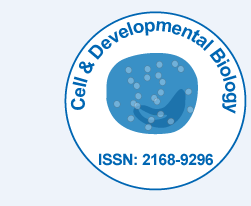
செல் & வளர்ச்சி உயிரியல்
திறந்த அணுகல்
ஐ.எஸ்.எஸ்.என்: 2168-9296

ஐ.எஸ்.எஸ்.என்: 2168-9296
Okunnuga Adetokunbo, O Ojo-bola, B Alo and N Okunnuga
This study was carried out to determine the prevalence and antibiotics resistance of Staphylococcus aureus among HIV/AIDS patients on highly active antiretroviral therapy in Ekiti State, Nigeria. A total of 200 blood samples were collected from Federal teaching Hospital, Ido-Ekiti and University Teaching Hospital Ado-Ekiti. The blood samples were examined for bacteria using cultural and biochemical characteristics. Antibiogram was carried out by disc diffusion method. CD4+ T-cell count was done using flow cytometry method. The Socio-demographic data of the patients were obtained through questionnaire. A total of 26 Staphylococcus aureus were isolated from HIV/AIDS patients with overall prevalence rate of 13.0% which is statistically significant (p value 0.02). Results showed that female subjects 15(7.5%) with HIV/AIDS were more susceptible to S. aureus associated bacteraemia than males 11(5.5%). Age group 41-50 years were the most infected with S. aureus with median age of 35 years (p value 0.607, X2= 0.26, df=1) which is not statistically significant. The CD4+ T-cell of the HIV/AIDS patients with S. aureus were within the range of 20 to 400 cells/µl. However, low CD4-T cell and multiple previous hospital admission were the identified risk factors with 100% and 88.5% occurrence rate respectively. The bacterial isolates were tested for resistance to eight antibiotics commonly prescribed in hospitals. The resistance to the antibiotics ranged between 42.3% to 80.8% with ciprofloxacin having less resistance. This study strongly suggests that the isolation of the S. aureus from HIV/AIDS patients might be because it takes advantage of the weaken immune system provided by deficiency in β-cell and dysfunctional macrophage in HIV/AIDS patients